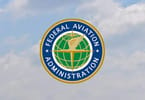Congo is sandwiched between East and West Africa – and is already facing challenges of near biblical proportions, from internal strife to crumbling and often entirely absent infrastructure, low literacy, corrupt regimes and often inexplicable hostility against Eastern neighbors Uganda and Rwanda has the country’s Equator Province now suffered a confirmed Ebola outbreak. An already overburdened health system in the affected areas is now at breaking point, as resource allocation for health centres and hospitals in the rural areas has always been notoriously low.
This may be threatening the travel and tourism industry as well. This industry is slow in Congo, but a major source of revenue in neighboring Uganda and Rwanda.
Fortunately the type of Ebola in Congo is of a different and a slightly less serious type to that in West African countries.
Though not related to the present situation in Sierra Leone, Guinea and Liberia, the Congolese strain has been identified as being different pointing to a local outbreak – the country suffered seven previous Ebola outbreaks since the virus was discovered in 1976, the last one in 2012 – has this new hotspot brought the disease closer to East Africa’s frontiers as Congo DR shares land borders with Uganda, Rwanda and Burundi as well as South Sudan, all of which will now probably see surveillance and screening stepped up similar to what airports already do.
The present Congo outbreak cost at least 13 lives, including doctors and nurses who did not immediately identify what their patients were suffering from and made worse by the shortage of often the most basic medical supplies in rural areas of Congo like surgical gloves, masks, needles and sterilization equipment. This has undoubtedly contributed to the spread of the disease as more than 70 people died with symptoms of hemorrhagic fever over the past weeks though not all were confirmed to have been infected by the Ebola virus.
However even that is not certain considering the difficulties to reach some of the locations from Kinshasa, secure blood samples and then transport them in an unbroken cold chain to laboratories equipped to identify the virus. From West Africa came reports that the first WHO staffer has now come down with Ebola symptoms, as has a British health worker deployed in the outbreak zone, significantly raising the risk assessment as foreign health officials in particular are generally well equipped and undergo a strict protocol of disinfection after being in contact with infected patients.
The added outbreak now in Congo has put the WHO, other international medical aid organizations and local health authorities in West Africa and now Central Africa under added strain as never before were so many Ebola cases in so many countries appearing at once. East African countries have taken prevention measures, such as screening protocols at airport for travelers showing signs of raised temperatures and other symptoms and airlines have in part halted flights to the affected countries, while South Africa has last weekend banned entry for citizens from the affected countries.
The fallout for the tourism and travel industry across Africa is thought to be significant and analysts are already closely monitoring changed travel patterns and are on the lookout for a downturn in arrivals. In Tanzania did over the weekend the Chairman of TATO, short for Tanzania Association of Tour Operators, go on record speaking of a 25 percent drop in arrivals and a 50 percent drop in numbers of enquiries, attributing this particular trend to the global fear about Ebola.
This largest outbreak ever has now claimed over 1.350 lives, has been declared an international health emergency by the WHO and may take months to bring under control. Fallout for the global tourism, travel and aviation industry is thought to exceed the 2003 SARS epidemic dent in statistics but unlike then when there was a global impact felt in travel patterns, this time it is largely travel to and from Africa which is taking the greatest hit of the present market reaction.
WHAT TO TAKE AWAY FROM THIS ARTICLE:
- Though not related to the present situation in Sierra Leone, Guinea and Liberia, the Congolese strain has been identified as being different pointing to a local outbreak – the country suffered seven previous Ebola outbreaks since the virus was discovered in 1976, the last one in 2012 – has this new hotspot brought the disease closer to East Africa's frontiers as Congo DR shares land borders with Uganda, Rwanda and Burundi as well as South Sudan, all of which will now probably see surveillance and screening stepped up similar to what airports already do.
- Fallout for the global tourism, travel and aviation industry is thought to exceed the 2003 SARS epidemic dent in statistics but unlike then when there was a global impact felt in travel patterns, this time it is largely travel to and from Africa which is taking the greatest hit of the present market reaction.
- From West Africa came reports that the first WHO staffer has now come down with Ebola symptoms, as has a British health worker deployed in the outbreak zone, significantly raising the risk assessment as foreign health officials in particular are generally well equipped and undergo a strict protocol of disinfection after being in contact with infected patients.






















